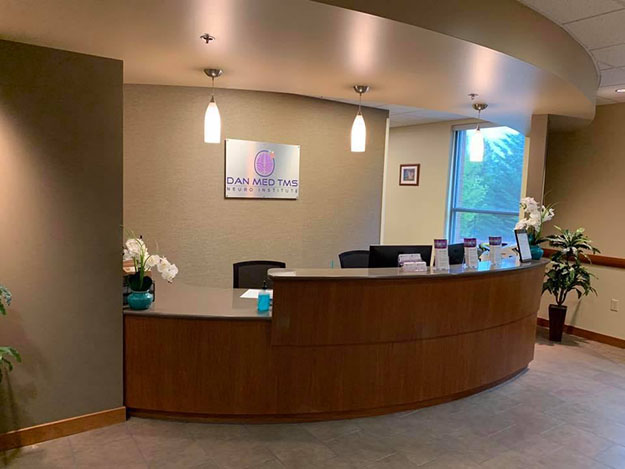Dr. Kalyan Dandala believes that Transcranial Magnetic Stimulation, or TMS, is the future of psychiatry.
"It is the next generation of treatment," he said. "There is not a shortage of people suffering from depression anxiety; there is, however, a lack of awareness about Transcranial Magnetic Stimulation."
Dandala is working to change this.
While working at a rehabilitation center at Schick Shadel Hospital, Dandala noted that some patients would relapse due to depression or anxiety, not necessarily addiction.
Intrigued by this observation, Dandala, a trained psychiatrist, found through his research efforts that TMS is being used in top notch institutions like Harvard, Stanford, Yale and the Mayo Clinic, to name a few.
Based on this work, Dandala concludedthat TMS may provide a way to treat those who suffer not only depression and anxiety, but also help those suffering from Post-Traumatic Stress Disorder (PTSD), obsessive compulsive disorder (OCD), and chronic pain.
Now a leader in TMS treatment, Dandala works with the National Clinical TMS Society to expand TMS treatment to pain, addiction, dementia, autism and other challenges besides depression and anxiety.
Of note, he is the first physician in Washington state to make TMS available to Medicare and Medicaid patients.
In July 2019, Dandala opened DAN MED TMS with the mission of bringing the best care to patients in need. He currently has three clinics - two in Washington and one in California. On Oct. 1, he opened another clinic in Tacoma at 2302 S Union Ave., Suite C30.
As to TMS, it is not new. It has been in existence since 1985; it has been well researched; it has Federal Drug Administration (FDA) approval; and most importantly, it is drug free. While the patient sits in a comfortable chair, the treatment features a targeted pulsed magnetic field that stimulates areas in the prefrontal cortex of the brain in order to alleviate depression or anxiety.
This medication-free treatment takes about 18 minutes; there is also an accelerated treatment that lasts about three minutes. Sessions are administered five days a week for four to six weeks. There are no side effects; patients can drive themselves to and from their treatment sessions.
"Ninety-two percent of our patients see a 50% reduction in symptoms," continued Dandala, "and 74% see 100% relief."
In a nod to the Joint Base Lewis-McChord community, Dandala added that he and his team understand the challenges families of military patients face, and are committed to addressing those challenges that affect the service member's family.
"The focus is to ensure that we offer TMS with no side effects like typical antidepressants for our military patients, and we will provide the best care to every patient as if they were our own brother, sister, mother, father, son, aunt or uncle," he continued.
"TMS allows for them to be medication free which is so vital to not only avoid side effects but if deployed they do not have to worry about taking a daily medication."
For more information about DAN MED TMS, visit www.danmedtms.com or call (888) 526-3066.
"It is the safest, most effective treatment for depression," concluded Dandala, "and it does not have any systemic side effects which antidepressants can cause."
SPONSORED





Read Comments